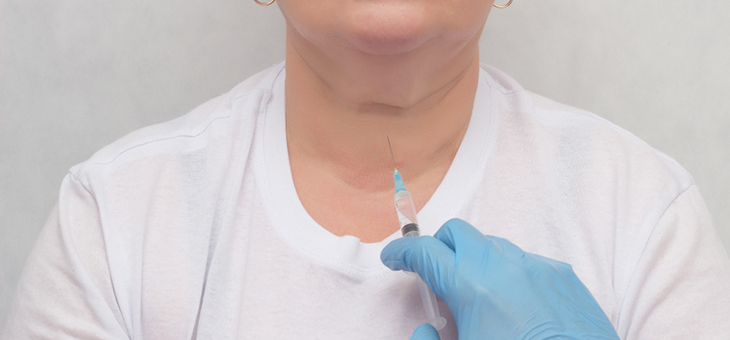A biopsy is a medical procedure where a sample of tissue is taken from a patient for examination and diagnosis of an illness or medical condition.
Biopsies are particularly important in the diagnosis of cancer. This procedure will often be performed when there is a lump, tumour, cyst or swelling for which there is no apparent cause.
In these cases, the doctor feels the only way to reach an accurate diagnosis is to take a piece of that lump and examine the cells directly.
Many different biopsy procedures exist depending on the location of the tissue under investigation.
Once the tissue has been removed, it is usually placed in a preservative and sent to a pathology laboratory where it is set in wax and finely sliced.
The slices are mounted on a glass slide and stained with various dyes that highlight different types and characteristics of cells.
Abnormal cells can be identified, and treatment can be decided according to the results. These tests usually take at least 24 hours to process before a pathologist can examine them.
Sometimes during surgery, a surgeon will request examination of a frozen section of tissue. Sections of frozen tissue are cut, stained and examined within a few minutes at the time of the operation.
Before a biopsy, you need to discuss a range of issues with your doctor including your medical history and what drugs and supplements you are taking.
Other tests, such as blood tests or ultrasound scans, may need to be done prior to the biopsy (depending on the nature of the condition under investigation).
Biopsy procedures
There are various kinds of biopsy procedures, including:
- Bone marrow biopsy – a small sample of bone marrow (usually from the hip) is removed via a slender needle. This type of biopsy helps to diagnose diseases such as leukaemia.
- Colposcopy-directed biopsy – a colposcope is a small microscope used to examine a woman’s cervix while a tissue sample is taken. This biopsy is usually performed to investigate the reasons for an abnormal Pap test result.
- Endoscopic biopsy – the endoscope is a flexible tube that can be inserted into an orifice (such as the mouth or anus) or through a small skin incision. Once the lump is reached, cutting tools are threaded through the endoscope so that a sample of tissue can be taken.
- Excisional biopsy – the lump is entirely removed. Depending on the location of the lump, the patient may need to undergo general anaesthesia. This type of biopsy may be used for breast lumps.
- Incisional biopsy – only a small slice of the lump is removed. Depending on the location of the lump, a general or local anaesthetic may be needed. This type of biopsy may be used for lumps located in connective tissue such as muscle.
- Needle biopsy – a small sample of the lump is removed via a slender hypodermic needle. This can be done either with or without local anaesthetic. This type of biopsy may be used to diagnose conditions of the liver or thyroid.
- Punch biopsy – a special tool is used to punch a hole through the uppermost layers of the skin. The anaesthetic used may be local or topical. This type of biopsy can help diagnose various skin conditions.
- Stereotactic biopsy – a series of x-rays help to guide the surgeon’s needle to the lump. This type of biopsy is usually performed whenever the lump is hard to see or feel.
How you feel after the biopsy depends on the sort of procedure performed. Generally, after a biopsy, you can expect the following:
- Some pain around the biopsy site. This should resolve, or at least ease, over the next two or three days.
- Your doctor will prescribe appropriate pain-relieving medication.
- Nurses will monitor your condition for some hours and check for bleeding from the biopsy site.
- You may have a blood count test to double-check that you are not bleeding internally from the biopsy site.
- You may undergo other tests to make sure all is well: for example, a chest x-ray if you had a lung biopsy.
- You should not drive yourself home, as surgical medications can sometimes make you drowsy. Ask a friend or relative to pick you up or take a taxi.
Results from a biopsy are usually returned within 24 to 48 hours. Special biopsies performed during surgical procedures may take as little as 10 to 15 minutes. Depending on the type of biopsy, you may need to make a follow-up appointment with your doctor to discuss the results.
If you enjoy our content, don’t keep it to yourself. Share our free eNews with your friends and encourage them to sign up.
Related articles:
The flu virus’s best friend
How much time in the sun?
Young blood can delay ageing

